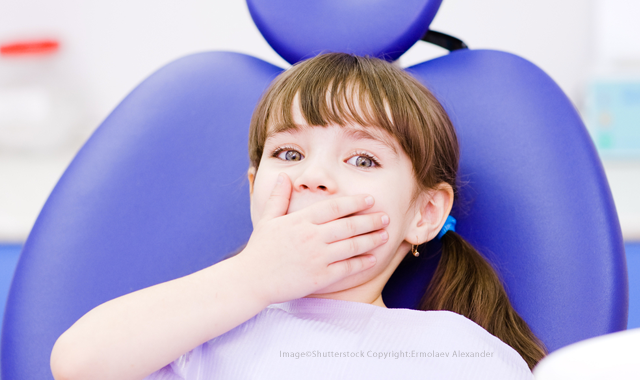Study finds that certain type of children respond better to laughing gas
If a dentist could predict how a child is likely to respond to the usage of laughing gas, also known as nitrous oxide, the visit is more likely to be free of anxiety and fear.

Before treatment, a dentist should have a sense of whether a patient is willing and able to cooperate during the procedure. This can be difficult to determine when the patient is a child. If a dentist could predict how a child is likely to respond to the usage of laughing gas, also known as nitrous oxide, the visit is more likely to be free of anxiety and fear.
The authors of an article published in the current issue of the journal Anesthesia Progress wanted to learn whether a child’s disposition is linked to successful usage of nitrous oxide. This form of sedation is often used by dentists treating children. Although children in general are prone to fear and discomfort in a dentist’s chair, research suggests that attitude is a key factor in how well a particular child will navigate a dental visit. However, no prior behavioral studies looked solely at nitrous oxide use.
Trending article: Nitrous oxide: What dental assistants need to know
The study included 48 patients, from three to eight years old, who were receiving dental care at a university-based clinic in Seattle, Washington. The children’s caregivers completed a validated behavior questionnaire, which the researchers used along with data from the patients’ charts to assess behavior and sedation success during the dental visit.
The researchers found that the types of children successfully treated with nitrous oxide vary widely. When they focused on uncooperative children, they found that if scores were better in one temperament category, Effortful Control, laughing gas was more successful. Subscales of a few other characteristics were also helpful in predicting success during the dental visit.
Trending article: Whose appointment is it, anyway?
Children who did well in the Effortful Control category had specific behavioral traits. For example, they could easily stop doing something when told “no” and could focus and become absorbed in a task, such as looking at a picture book. “It appears that children who are able to focus on a task and inhibit negative reactions are likely to be good candidates for treatment with nitrous oxide,” said lead-author Travis M. Nelson.
The researchers concluded that, unsurprisingly, children who can overcome poor attitudes about a trip to dentist are most successful in receiving dental care. Those who can focus on the task and remain focused throughout the visit have the best ability to control negative reactions. The researchers suggested that those who cannot focus might be better candidates for oral sedation or general anesthesia.
Full text of the article “Temperament as a Predictor of Nitrous Oxide Inhalation Sedation Success,” Anesthesia Progress, Vol. 64, No. 1, 2017, is now available at http://www.anesthesiaprogress.org/doi/full/10.2344/anpr-63-03-01